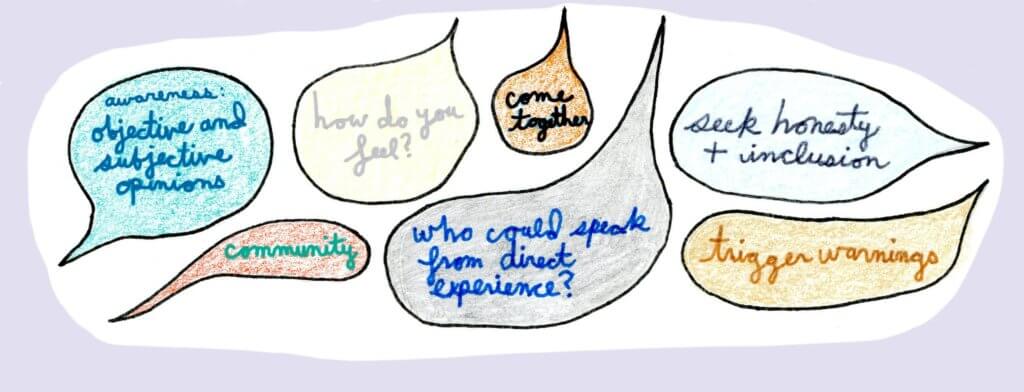Luke Anderson discusses the topic of accessibility and what we can do to better our communities
“In order to make our communities even better places, we need everybody around the table,” said Luke Anderson, executive director of the StopGap Foundation. “We need people from all different lived experiences in on the discussion of how to create the change we would like to see. But unfortunately there are people from those different groups that aren’t able to get to the table.”
On Feb. 5, Anderson gave a talk about accessibility and the tools everyone can use to make a positive change in their communities, as part of the President’s Speakers Series.
StopGap is a charitable organization that focuses on providing access to areas where it is lacking by building and installing ramps. According to their website, their mission is to “create a world where every person can access every space. A world free of barriers would help give everyone the opportunity to live a life full of independence, spontaneity, and ultimate fulfillment.”

Before the talk began Sandy MacIver, the director of the Jon Royce Centre for Business Studies and chair of the President’s Speaker Series, addressed the recent controversy on campus about the school’s accessibility issues. “We’ve talked to Luke several times and told him about the state of the campus, that it’s a work in progress and we’re trying to get better. And I can assure you that over the last couple of weeks we’ve had more conversations than perhaps ever before on the importance of really upping our game in terms of access to facilities,” MacIver said.
At the beginning of the talk, Anderson showed a picture of a horse wearing blinders. “I’d like to draw a parallel between a horse wearing blinders and us as a society in general. We just don’t recognize everyone in our communities and because of that I feel like this holds us back, as individuals, from reaching our full potential, but it also holds our communities back from reaching their full potential,” he said. He urged everyone to “feel into their blinders.”
During the talk Anderson presented the acronym FAFMBEFP for the eight keys he’s come up with that people can use to improve their communities. The letters stand for frustration, awareness-raising, free, many hands on deck, be disruptive, education, fun, and people first. “What I had to do was really dig deep and figure out what was making our initiative so successful,” said Anderson. “During this deep dive into our organization, I started pulling out these specific guiding principles that I wrote down and organized into this acronym.”
Anderson also told the story of a mountain biking accident that resulted in the spinal cord injury that landed him in a wheelchair: “In a split second, I left my life as I knew it and I was all of a sudden introduced to a world that’s really not well-suited for someone that uses a wheelchair.”
Anderson said that the first key, frustration, really occurred for him when he was working at a building in Toronto that had three steps up into the lobby and no ramp. At least twice a day, someone had to set up a heavy aluminum ramp so that he could enter and leave the building. “Just for a second here, imagine what that would be like. Imagine what that would do to your independence and your spontaneity and your quality of life,” he said. “Just feel into what that might be like for you. Well, I had to deal with that situation for eight years. For eight years I had to rely on someone, rain or shine, and it made my frustration with this issue of inaccessibility to spaces really boil over.”
In 2011, Anderson founded StopGap with his friend Michael Hopkins. “I wanted to raise awareness about how, as Canadians, we all have a human right to equal access,” Anderson said.
Anderson also described how he realized the third key, free, was important when he noticed business weren’t interested in taking part if they had to pay for the ramps. StopGap started sharing the ramps for free so that anyone could take part in the project if they wanted to. “Once we did [that], we started seeing ramps pop up in Charlottetown, in Halifax, in Prince George and Vancouver and everywhere in between … including here in Sackville,” he said.
Anderson noted that the last key, the idea of putting people first, humanizes their initiative. “It reminds us that we’re all here as humans with unique and equally valuable lived experiences,” he said.
“The StopGap initiative is really helping people shift their perspectives around the way that they see things in their community and beyond. And we’re helping people recognize that it’s not us that have disabilities but it’s the places that we live, that we work, that we play in and learn in that are disabled,” Anderson said.
Mackenzie Pyne, a first-year psychology student, said the talk helped open up a new perspective for her. “It was interesting being able to sit there and listen to how someone in that situation feels and the obstacles they go through – stuff that I can do very easily that some people can’t,” she said. “It’s interesting to see a new perspective and it makes you more aware.”
At the end of the talk, Anderson emphasized that with its blinders off a horse actually has a 340-degree field of vision: “A horse can actually see almost entirely around itself, which is pretty amazing. When I first started to feel into the blinders that I was wearing and that I continue to wear, I started to recognize people for what they can do, and not what they can’t do.”





